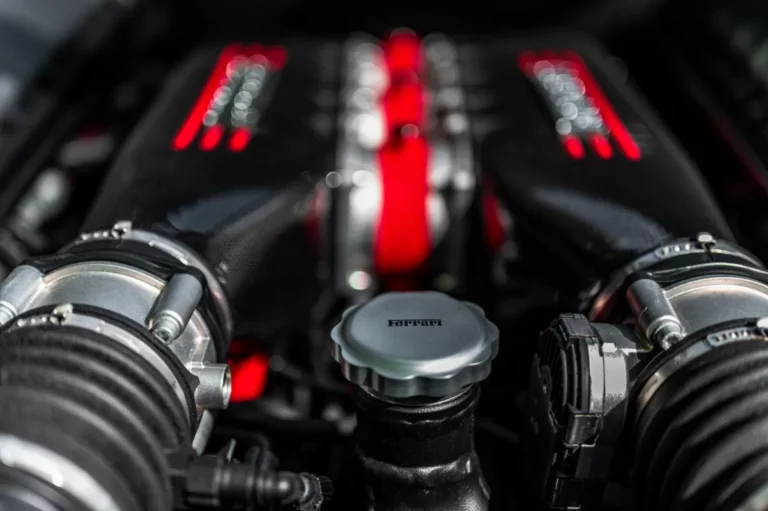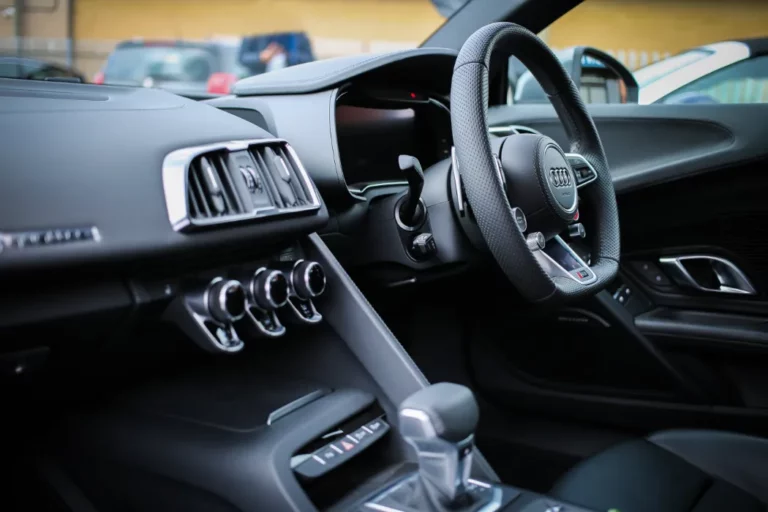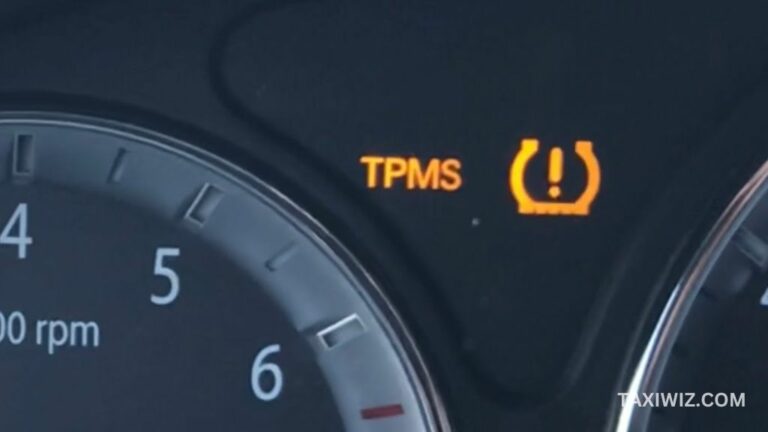Why Is My Car Feels like It’s Dragging When I Accelerate?
Acceleration works the same in most cars despite the power on the engine fitted to them. The driver depresses the gas pedal, and the engine gets more air and fuel, producing more power.
In most new cars, there are mostly three position sensors to which the accelerator connects. The sensors connect to the ECU, which signals the throttle body to accelerate. However, there are more parts involved to make acceleration successful.
Nevertheless, sometimes the car would feel like it’s dragging when the driver accelerates. Read on to learn the possible causes and the solutions you can try and fix it.
Why Is My Car Feels Like It’s Dragging When I Accelerate?
Faulty sensors, including the mass air flow, throttle position, and oxygen sensors are common causes of a car’s sluggish acceleration. However, failing spark plugs and blocked air filters may also cause this problem.
While a dragging acceleration is an issue, it’s also a symptom of a developing problem. Therefore, solutions should be immediate to prevent further possible damage.
The following section covers the causes and solutions in detail to help you understand better.
1. Mass Air Flow Sensor Problems
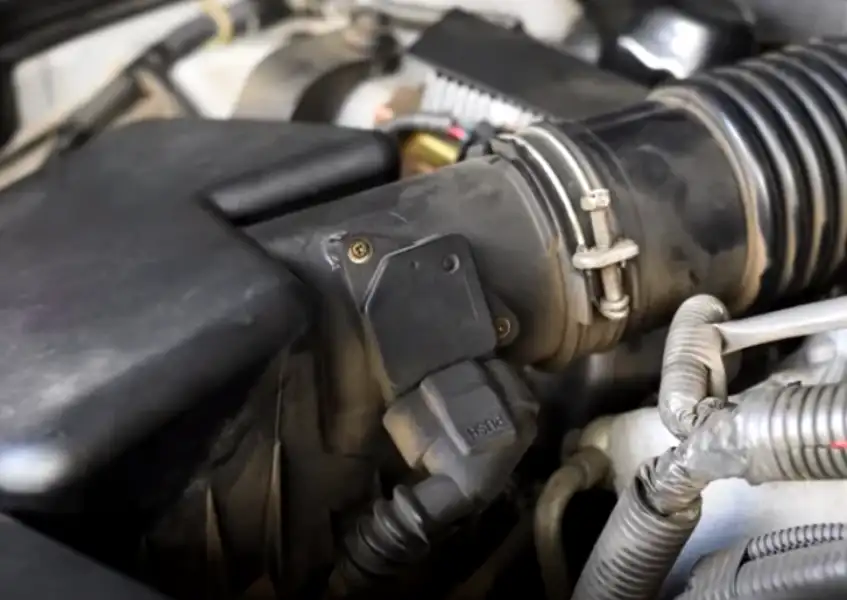
The mass air flow sensor is part of the electronic fuel injection system in a vehicle. This aims to ensure the correct air-fuel ratio (AFR) in the combustion chamber. And the AFR varies when accelerating (mostly 12:1) and cruising (mostly 22:1.)
Possible causes of the sensor failure are air and dirt, among other debris contamination. When the sensor is contaminated, it may give the ECU the wrong information, especially on fuel amount.
If much fuel remains in the combustion chamber, it causes untimed engine detonation. This problem causes the engine to lose power, especially during acceleration when much is needed.
Solutions include cleaning the sensor by blowing off the dust or using a compatible cleaner. In most situations, replacing the sensor works better. And replacing the MAF can cost between $60 and $400, labor included.
2. Faulty Throttle Position Sensor
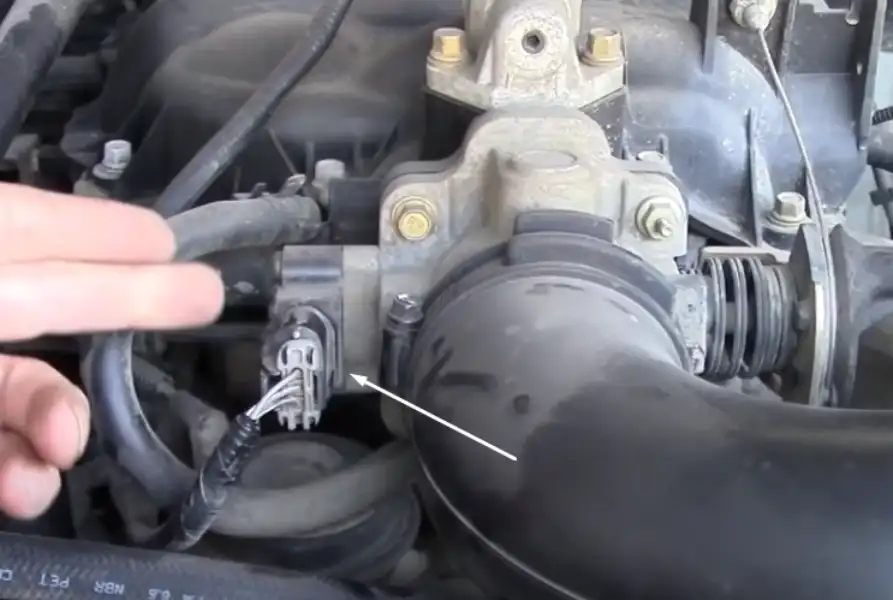
The purpose of the throttle position sensor is to determine the position of the throttle. Once it gathers the information, it sends it to the ECM, which helps determine the ideal air and fuel mixtures.
But the sensor fails due to poor contact or internal contamination by debris and dust. When it fails, the ECM may receive the wrong information on the fuel needed to be injected.
Fixing the throttle sensor can include repairing, reprogramming, or replacing it. Of the three, replacing always has a better chance of working with the least repair time. You can expect to pay between $150 and $210 labor included to replace the part.
Read Also: 10 Reasons Why Does My Car Thump When I Accelerate
3. Errors in The Oxygen Sensor
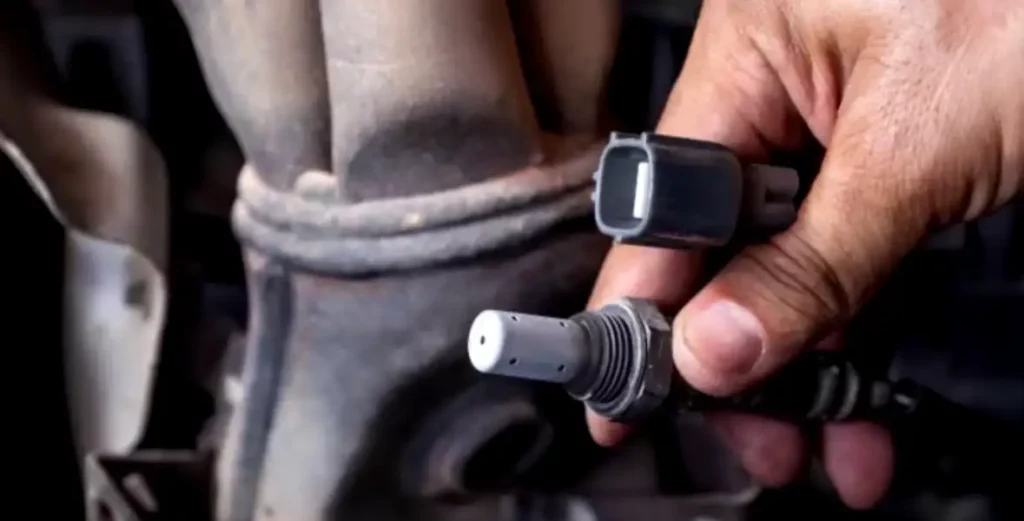
The oxygen sensor monitors the amount of unburned oxygen in the exhaust and is sent to the ECU, which then determines the correct air-fuel ratio.
Contamination is the main cause of the sensor failing since it can be coated with combustion by-products. When contaminated, it sends the wrong information causing problems.
So, like other sensors, the O2 sensors should be replaced instead of repairing it. An oxygen sensor buying cost ranges between $20 and $100.
Read Also: Why Car Shakes When Pressing Gas Pedal?
4. Failing Spark Plug
A spark plug creates a spark to ignite the fuel in the combustion chamber. Without the spark, there is no explosion needed to push the cylinder down and allow the engine to move.
Carbon buildup, overheating, and oil contamination in the combustion chamber cause the spark plug to fail. When it fails, the engine misfires, which is responsible for the loss of power when accelerating.
A failed spark plug should be replaced immediately, which can cost between $40 and $300, depending on the repair shop. However, replacements are easy, and you can do them without professional help.
5. Blocked Air Filter
The air filters ensure the air circulating in the vehicle’s heating and cooling system is clean. It filters the air as it passes the filter media to remove contaminants like dust.
With time the filter becomes blocked, limiting the amount of air going through. Without enough air circulating to the engine, it interferes with its operations, affecting its operations.
An air filter can be cleaned or replaced, depending on the amount of dirt on it. You can expect to buy the air filter for a price below $30, which you can install and save labor costs.
Other causes include a dirty fuel filter, a failing fuel injector, a dirty catalytic converter, and a worn-out timing belt. Most of these parts require cleaning and replacing to solve the problem.
Read Also: Car Feels Like It’s Pulling Back When Driving:
Diagnosing the Sluggish Acceleration Problem
While there are many possible failing parts causing the problems, you can tell the exact cause by diagnosing them. Diagnosing a car that has sluggish acceleration includes;
- Observe for any Illuminated check engine lights
- Check the exhaust fumes, which may point out to the engine control unit or the catalytic converter problems
- Observe your vehicle’s gas mileage, and if it’s poor, check the parts
- If the car gets into Limp mode, check the cause immediately because failed sensors cause them
- Use scanner tools (our pick: MOTOPWER MP69033) to read fault codes.
Frequently Asked Questions (FAQs)
The following section covers common questions asked about the vehicle having sluggish acceleration.
Is it Safe to Drive a Car That Is Sluggish When Accelerating?
It’s best to get the problem checked soon because the issue might be a symptom of developing issues. Also, the acceleration power might be low in critical times, like when driving on a hill, causing a stall.
How Long Does It Take to Repair a Car With Sluggish Acceleration?
Depending on the cause, the problem should only take a few hours to fix. Replacing the spark plug can take an hour, while some sensors can take up to four hours to replace.
How Much Should Fixing A Car With A Sluggish Acceleration Cost?
The cost of repairing a vehicle with a sluggish acceleration ranges between $50 and $450. Some causes are cheap to fix and don’t require a professional, while others do.
Conclusion
Acceleration is crucial and may be life-altering in situations like when overtaking. Therefore, it’s in your best interest to repair the problems as soon as you notice them. The article lists some of the common causes along with their answers.
With the knowledge of the causes, it should be easy to troubleshoot and fix the problems. Some of the repairs are doable through DIY without needing a professional mechanic, which saves you labor money.


